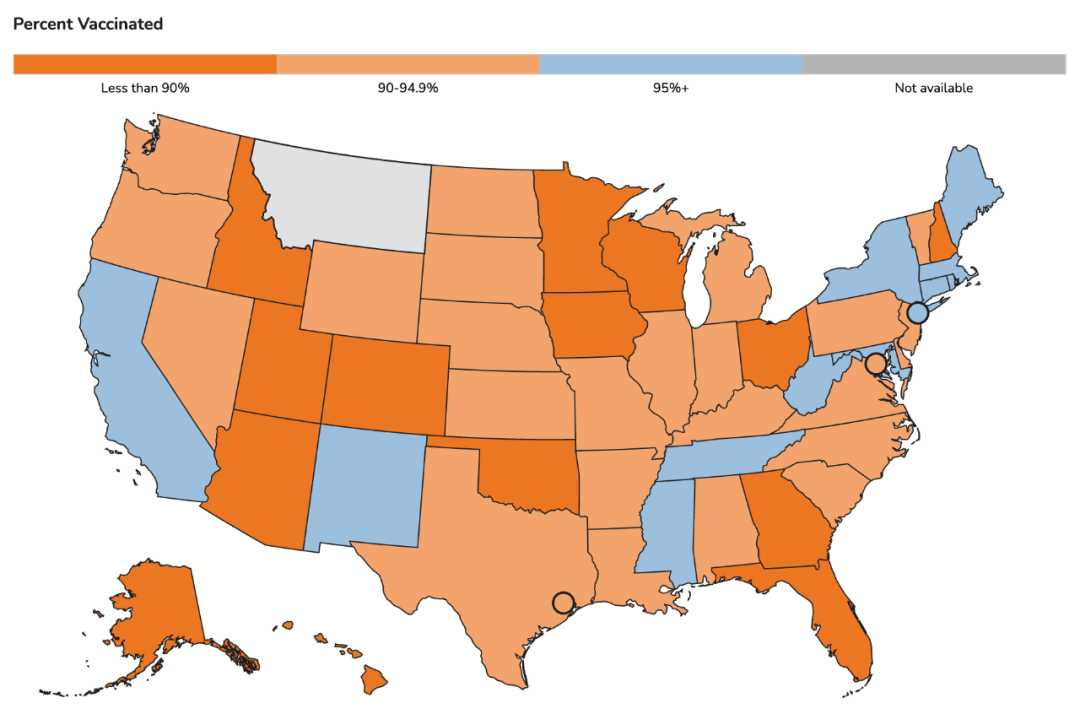While there is no specific treatment for measles, vaccination offers effective prevention. Administered as the Measles-Mumps-Rubella (MMR) vaccine, two doses can prevent over 97% of measles infections. Globally, measles vaccines are estimated to have averted 31.7 million deaths over the past 20 years, underscoring their life-saving impact.
However, large-scale measles outbreaks often occur in regions with subpar vaccination rates. Herd immunity—where over 95% of a community is vaccinated—provides protection for most people. In the U.S., kindergarten vaccination rates have failed to reach this threshold for over four years; in the 2023–2024 school year, the rate dropped to 92.7%, leaving approximately 280,000 kindergarteners at risk of infection.
This gap highlights the urgency of maintaining high vaccination coverage. As measles remains highly transmissible, even small drops in vaccination rates can trigger outbreaks, threatening unvaccinated individuals—especially children and those with weakened immune systems. Public health experts emphasize that sustained vaccination efforts are key to preventing resurgences and protecting vulnerable populations.








